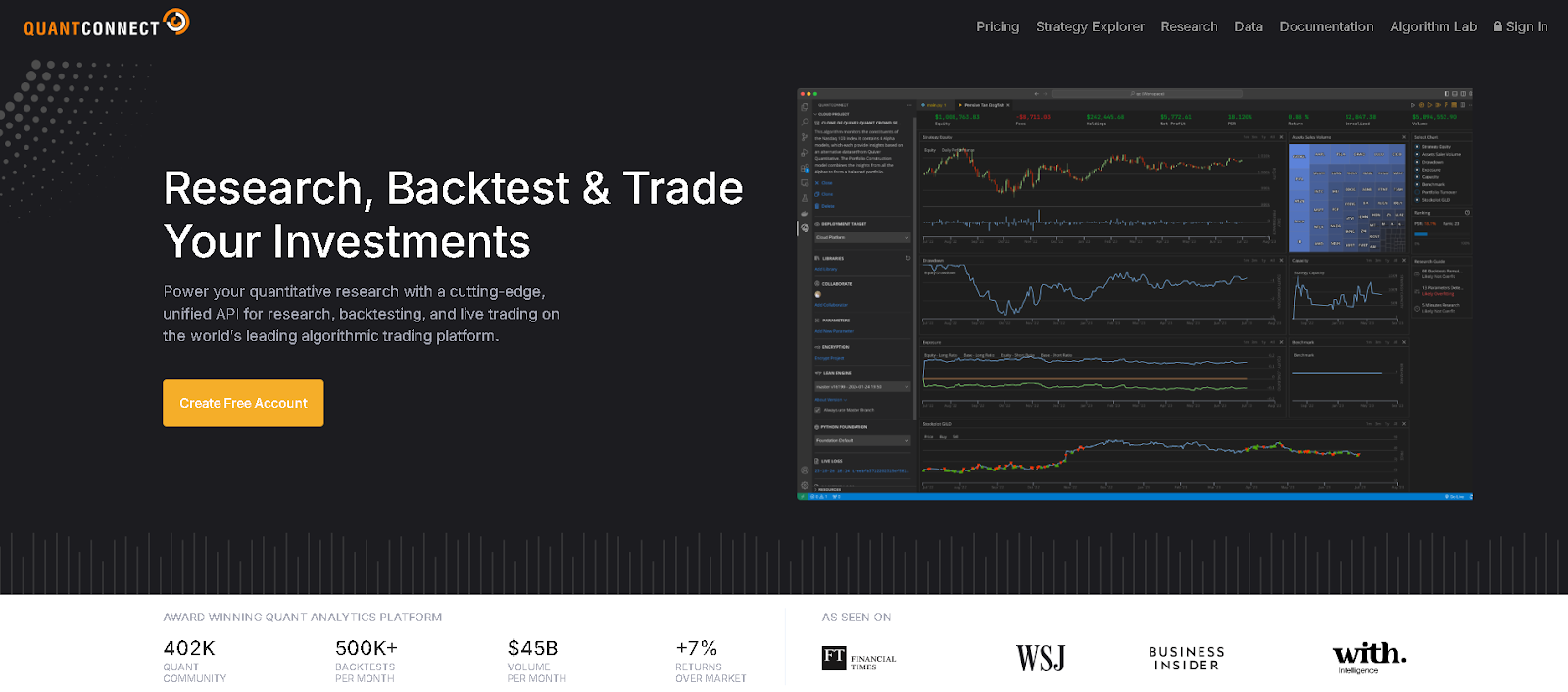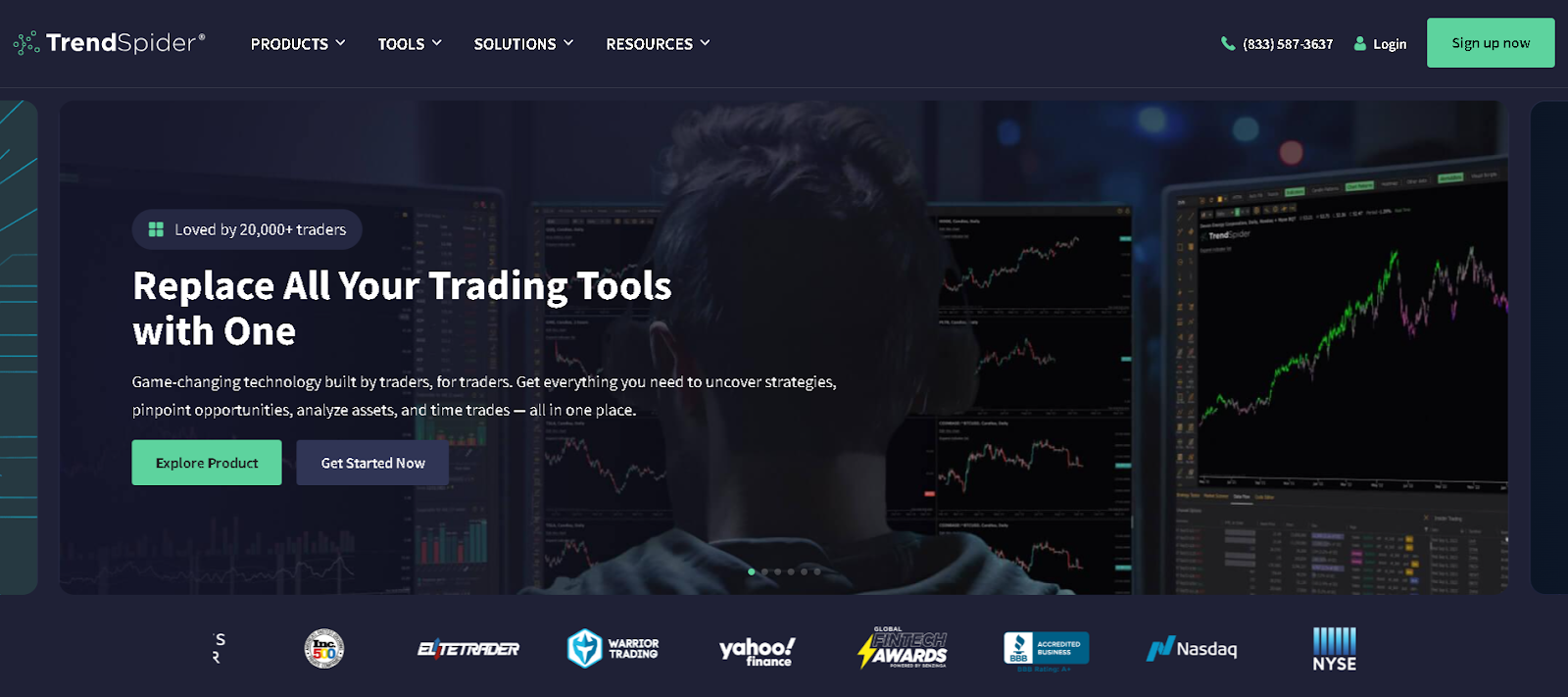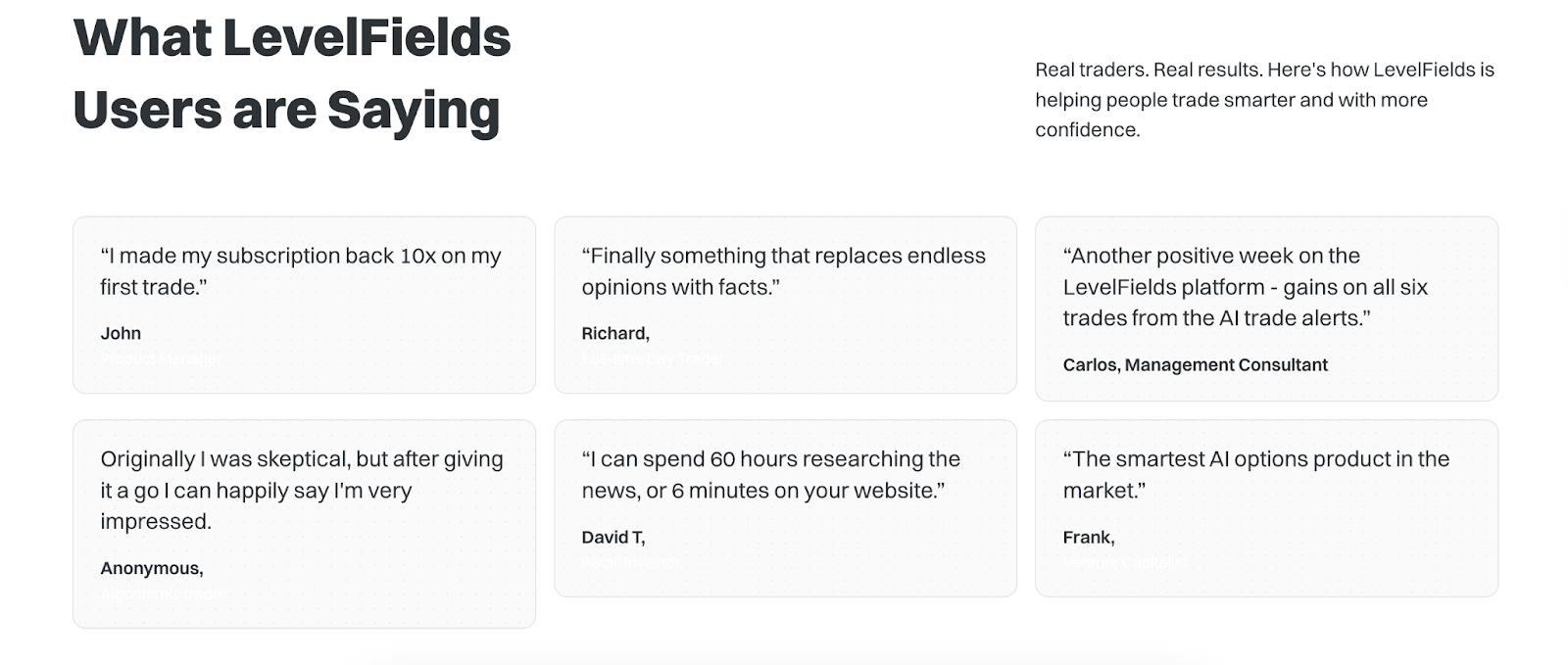Explore the top AI stock predictions and discover which companies are poised to lead the market. Read the article to make informed investment choices.
AI Investing
Table of Contents
If you've ever tried to research stocks, you know it can be overwhelming. From company earnings and technical indicators to interest rates and market sentiment, there’s a constant flood of information to process.
That’s where artificial intelligence (AI) steps in.
AI stock predictions offer a smarter, faster way to analyze the stock market. Instead of relying solely on instinct or old-school methods, AI uses machine learning to study historical data, real-time price movements, and a wide array of financial signals.
The result? More accurate predictions, fewer blind spots, and better-informed investment decisions.
This blog post will cover everything you need to know about AI stock predictions, from how they work to the tools you can use and how they compare with traditional stock analysis.
AI stock predictions are forecasts made using artificial intelligence to estimate where stock prices might be headed.
Instead of relying only on your gut or a stock advisor’s take, these tools use machine learning algorithms to break down huge amounts of stock market data and surface valuable insights.
Here’s the gist: AI tools analyze everything from historical data and current prices to analyst ratings, earnings reports, and even headlines. They spot patterns in the chaos, things that might hint at future stock price movements.
Some tools use well-known technical indicators like the exponential moving average (EMA) or relative strength index (RSI), which are both key parts of technical analysis.
These systems don’t need to be explicitly programmed to look for one thing; they learn as they go. As they process more data, they improve their predictions, often faster than any human analyst could.
Many also factor in stock advisor commentary, making the output smarter and more context-aware.
Whether you’re a long-term investor or someone testing new trading strategies, leveraging AI gives you quicker access to the kind of insights that used to take hours to uncover.
If you’re trying to make smarter investment decisions, AI gives you a serious edge. It can help you research stocks, monitor company financial statements, and spot opportunities faster than manual analysis ever could.
Whether you're an active trader or just starting to research stocks, the right AI platform can help you make more informed, data-driven decisions.
Here are five standout tools to help you get started.

If you're serious about using AI stock predictions to stay ahead in the market, LevelFields is the platform to watch.
Built specifically for retail traders, it uses AI to detect market-moving events before the rest of the crowd catches on.
LevelFields scans millions of data points, from Securities Exchange Commission (SEC) filings and earnings reports to news headlines and company updates. Its AI isn’t just looking for general trends; it’s trained to flag specific catalysts, like CEO resignations, buybacks, or activist activity, that have historically impacted stock prices.
These insights let you act on real, high-signal events instead of chasing noise. You can also customize alerts to focus on the types of events or trading strategies that matter most to you.
You don’t need to build complex models from scratch. LevelFields offers over 100 pre-configured AI-powered trading strategies, each based on tested historical reactions to specific events.
Whether you’re looking for short-term moves or longer setups, you can plug in a strategy, monitor the results, and receive real-time alerts when similar setups occur. And if you’re more hands-on?
You can layer in your own filters, like market cap, sector, or volume, to tailor strategies to your personal investment strategy.
What really sets LevelFields apart is its ability to help you refine your timing. Using historical data and past stock price reactions, it can recommend smart entry and exit points. That’s especially useful in volatile markets or for options traders looking to maximize profit windows.
This kind of technical analysis–informed support is like having a team of analysts feeding you accurate predictions, but automated and available 24/7.
Whether you’re a seasoned trader or just starting to research stocks, LevelFields gives you tools to grow.
For those needing a little more help, their Level 2 subscription involves their analysts utilizing internal AI tools to flag the best trades. A combination of fundamental, technical, economic, and event-driven analysis has resulted in over 4,500% returns on closed trades in 30 months.
Bottom line: If you want to leverage AI stock predictions for smarter, faster trades, and not just follow the herd, LevelFields is a powerful ally. It blends fundamental, technical, and event-driven analysis into one seamless platform.
Trade the signal, not the noise, and join LevelFields today.

QuantConnect is an open-source algorithmic trading platform that empowers investors to create custom trading strategies using AI and machine learning.
Built on the LEAN engine, it connects users with real-time data feeds, financial models, and a global backtesting infrastructure that’s widely applied in both institutional and retail investing.

TrendSpider is a smart charting platform that blends traditional technical analysis with automation.
Designed to help traders make faster, more informed decisions, it helps you analyze technical indicators, draw trendlines, and scan for setups across multiple timeframes.

TuringTrader offers rule-based investment models tailored to individual investors. It helps you simulate, analyze, and execute AI-powered trading strategies using historical data.
It's especially useful for those who want to bridge the gap between traditional backtesting and modern machine learning systems.

Tickeron is a comprehensive platform that uses AI to provide stock predictions, pattern recognition, and trading ideas.
It functions as a stock advisor by offering AI-generated insights on when to buy stock and when to exit based on proprietary algorithms.
Whether you're looking to reduce risk, improve long-term performance, or act quickly on relevant data, here's how to make AI a core part of your investment approach.
Putting all your money into one sector or asset class is risky. AI tools help you spread that risk by analyzing thousands of companies across different industries, geographies, and asset types.
For instance, if AI detects strong profitability among AI-focused Nasdaq companies and weakness in cyclical industries, it might recommend rebalancing toward more promising areas.
Diversification powered by AI reduces exposure to volatility while increasing your chances of achieving a strong average return.
AI excels at crunching real-time data, identifying trends, and reacting instantly to market shifts. But even the most advanced tools have inherent limitations, like missing the broader context or relying too heavily on past performance.
That’s where traditional analysis comes in.
Pair AI technologies with your own review of company financial statements, competitive positioning, and strategic factors. AI might flag a breakout, but only your judgment can assess whether it aligns with your long-term investment strategy.
By blending AI insights with human reasoning, you can make more informed decisions, whether you're evaluating a blue-chip stock or a fast-moving growth company.
Markets move fast. The best strategies adapt just as quickly.
AI tools use machine learning algorithms to update predictions instantly based on textual information, earnings releases, share prices, and macroeconomic events. This allows you to:
Whether you're a short-term trader or long-term investor, leveraging AI lets you fine-tune your plan and stay ahead of market movements, without relying solely on gut instinct.
AI isn’t just for day traders. It’s also just as effective for long-term investors.
Advanced platforms can evaluate financial performance, spot companies with a strong growth trajectory, and identify favorable trends across the stock market.
They also help you find stocks with consistent earnings and high return potential, track macro shifts that could impact long-term performance, and avoid short-term hype in favor of true value.
Over time, using AI to guide your portfolio management could outperform conventional strategies, especially when it helps you stay committed through market noise and volatility.
Great investing isn’t just about finding winners, but also avoiding major losses.
AI stock prediction tools monitor volatility, price breakdowns, and negative news to alert you before things spiral. For example, if profitability plummets or insider selling spikes, your AI assistant can flag it before it’s reflected in the current price.
You can also set risk thresholds, get alerts for rapid sentiment shifts, and simulate downside scenarios based on similar past events.
This proactive approach helps you protect gains and avoid unnecessary drawdowns, especially in unpredictable markets.
AI platforms analyze a wide array of global indicators, from data centers and financial filings to social media sentiment and analyst commentary.
You’ll gain real-time insights into:
This edge helps you anticipate market shifts instead of reacting to them, positioning you early in high-upside opportunities, while steering clear of lagging assets.
If you’re serious about investing with precision, LevelFields is built to help you act on AI stock predictions with speed and confidence.
Instead of drowning in noise, you’ll get clear, timely signals powered by AI, and backed by real financial data.
Whether you're a seasoned trader or new to the market, LevelFields helps you spot real opportunities by analyzing how stocks react to major events, like earnings beats or CEO changes, across the same period in the past.

With a LevelFields account, you can:
No fluff. Just smart tools to help you make better calls in any market.
Ready to see what AI can do for your strategy? Sign up for LevelFields and start using data the way pros do.
The best option depends on your investment strategy, whether you're focused on trading, long-term investing, or real-time alerts from a smart stock advisor.
Platforms like LevelFields offer strong AI-driven insights.
Companies powering the AI revolution, like those building data centers or developing enterprise tools, are seeing growth. Many investors view firms like Palantir Technologies and NVIDIA as strong candidates for future market performance.
AI stocks offer long-term benefit and have the potential to produce monster returns, but they come with volatility. Choose companies with solid financials and a clear path to profitability.
Analysts expect continued growth, especially for companies leveraging AI in the stock market and enterprise solutions. But performance will vary, so take advantage of AI tools to assess each stock on its own account.
Join LevelFields now to be the first to know about events that affect stock prices and uncover unique investment opportunities. Choose from events, view price reactions, and set event alerts with our AI-powered platform. Don't miss out on daily opportunities from 6,300 companies monitored 24/7. Act on facts, not opinions, and let LevelFields help you become a better trader.

AI scans for events proven to impact stock prices, so you don't have to.
LEARN MORE